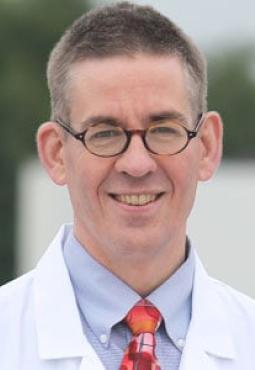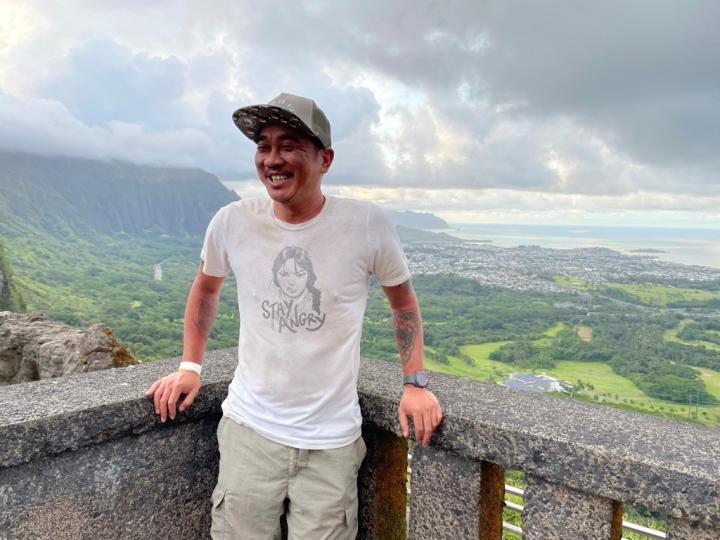Milton Liu, a storyteller by trade, says one critical story is not being told.
“We don’t get taught about dealing with cancer when we’re in school,” he says. “It’s all about self-advocacy. And so much of it is about having the mental will to fight. If you’re not happy with your treatment, go find someone who will champion you.”
In other words, write your own script, something Liu is quite good at doing.
He’s an award-winning filmmaker and founder of his own production company, Kulture Machine. He’s written for Disney and Fox, earned the Tribeca Film Festival’s Creative Promise Award, and executive produced the feature film “Fireflies in the Garden” starring Julia Roberts, Ryan Reynolds, Willem Dafoe and Emily Watson. In his spare time, he advocates for fellow Asian-American creatives as executive director of the Asian American Media Alliance.
He was raised in Kansas City, where his father (Dad was Chinese; Mom is Taiwanese) had a position at the Midwest Research Institute. Liu was the All-American kid, excelling at multiple sports, which he saw as his path to acceptance by his overwhelmingly white schoolmates.
The film bug didn’t bite right away. Liu studied finance at the University of Illinois and spent seven years handling intellectual property issues at prestigious accounting firms. But when a friend entered film school, Liu’s interest was aroused, and he decided to go for it as well, moving to Los Angeles some 15 years ago.
He wears his Asian heritage with great pride, but, unfortunately, another family legacy has brought sadness.
“My father passed away 10 years ago,” he said. “Twenty years ago he was diagnosed with cancer, but hid it from us. I also have an older brother who was diagnosed with colon cancer when he was 40, and an uncle in Taiwan with colon cancer, too.”
Liu didn’t want to be the next case.
Screening Requests Denied
“For 10 years I was always looking to get screened,” he explained. His insurance company kept saying no, unwilling to cover a colonoscopy for someone in his thirties (the old guidelines recommended colonoscopies beginning at age 50; the age has recently been lowered to 45 because an alarming number of younger patients are presenting with colon cancer). After his older brother was diagnosed, Liu took matters into his own hands and paid for his own colonoscopy. It was clear.
But it was a different story eight years later in 2019 when Liu underwent another colonoscopy. This one detected cancer and, one week later, a computed tomography (CT) scan showed “bright spots” on his liver.

“They told me I had Stage 4 cancer, that it was inoperable, and I had two years to live,” he recalled. He also recalled becoming “really furious,” convinced that he could have caught the disease in time had he begun screenings a decade earlier.
His anger intensified when three different oncologists refused to attempt surgery to remove the tumors. They believed, as many of their colleagues still believe, that once colon cancer has spread to the liver it is most likely everywhere, and surgery would be pointless.
Liu began chemotherapy in November 2019. It was the only option offered to him, and it’s not a good one: chemo cannot cure metastatic colon cancer. He also vehemently disliked the treatment facility’s sparse, dreary atmosphere and the perfunctory attitude of the staff. That’s when a family friend told him about City of Hope.
A Complete 180
Immediately he sensed a difference.
“At first, I didn’t want to go,” he recalled. “I didn’t want to get turned down [for surgery] a fourth time. But City of Hope was a complete 180 compared to what I’d seen before.”
Starting with speed. Liu delivered his scans to liver specialist Yuman Fong, M.D., Sangiacomo Family Chair in Surgical Oncology and professor and chair of the Department of Surgery. It was the day before Thanksgiving, and Liu expected a long wait during the holiday season. Fong responded the next day and set up an appointment for the following week. “I was shocked and amazed,” Liu said. And it only got better.
“Dr. Fong spent an hour with me, showing me pictures, describing how the cancer may have spread, explaining everything,” he recalled. “He was so relatable, so personable. That was huge for me.”
Finding tumors in the liver doesn’t mean there is no hope, explained Fong (who, coincidentally, has starred in his own video). The liver is an effective filter, he says, which can block the cancer from spreading further. Unfortunately, many oncologists don’t understand that. Fong says half of the patients with colon cancer will also present with cancer in the liver, but a scant 5% of them undergo surgery. “There is still a gap in knowledge [among surgeons], but the fact is, I don’t look at the number of liver tumors anymore. There can be 10 to 15 tumors or more, and surgery can still be effective.”

“We look at every patient as an individual,” agreed colorectal surgeon Andreas M. Kaiser, M.D., professor and chief of the Division of Colorectal Surgery, Department of Surgery. “And if there’s a chance, we make no promises, but we do our best.”
Both surgeons believed they could treat Liu’s colon and liver tumors in one surgical procedure. There were no guarantees, and such complex surgery could be risky. But Liu would be in the hands of a surgical tag team with considerable experience.
“We do a large number of them this way,” Kaiser explained.
Fong agreed. “Dr. Kaiser and I have done so many of these together, and we think the results are better,” he said, pointing out that doing a single procedure simplifies recovery, among other benefits.
The key is to attack the most urgent need first. In Liu’s case, Fong began the surgery, removing his gall bladder, right adrenal gland, and a third of the liver, which in time will grow back. Kaiser followed, taking out two-thirds of Liu’s colon.
Then came the surprise.
Not What It Seemed
The tumors in Liu’s liver “looked funny to me,” said Fong. “Not like typical colon cancer.” Closer examination confirmed that the tumors weren’t cancer at all, but rather a rare and “bizarre” form of benign hamartoma. The cancer in his colon had not spread after all, which meant that Liu, who had been put back on chemo following surgery, was now able to discontinue that treatment.

He can’t help thinking about all the other oncologists who didn’t even bother to investigate and just called everything “inoperable.”
“Imagine,” he says, more than a little miffed, “if I stayed with those oncologists who wouldn't remove the colon cancer, and that's what killed me. And that's what I appreciated with Drs. Fong and Kaiser and City of Hope. Even if something was rare, they were able to be proactive instead of standing pat.”
Less than three weeks after surgery, Liu was up and about, walking through his Silver Lake neighborhood. His prognosis is excellent, and he now calls himself a “superfan” of City of Hope.
“My mindset now is one of optimism,” he says, adding that he’s reordered his priorities a bit: a little less hustling for work, a lot more emphasis on quality of life, “making the time to make memories.”
And the obvious question: Does this acclaimed Hollywood writer now have the perfect autobiographical material for a new screenplay?
“I’ve never really been a fan of ‘cancer movies,’” he said, smiling.
“But I’m thinking about it.”
